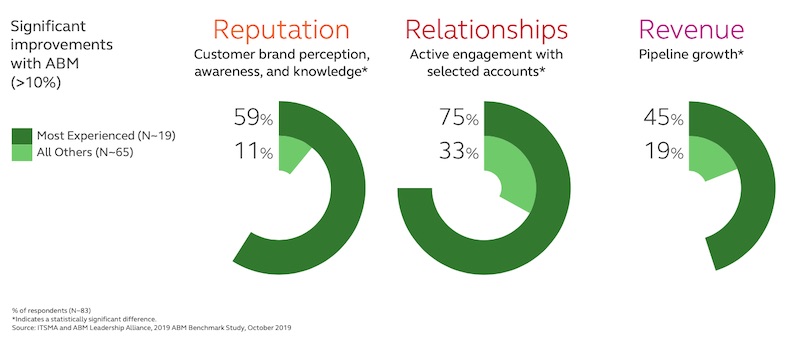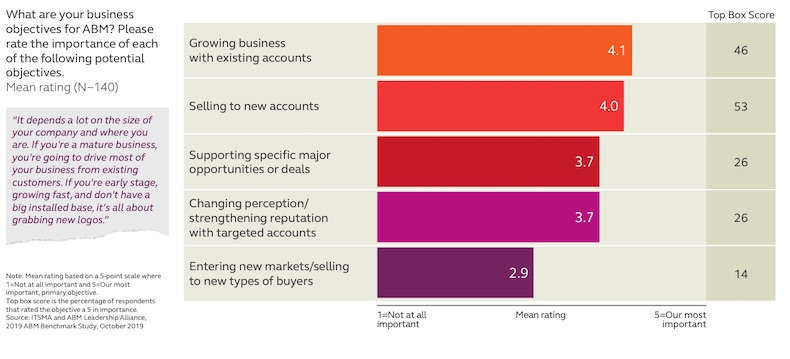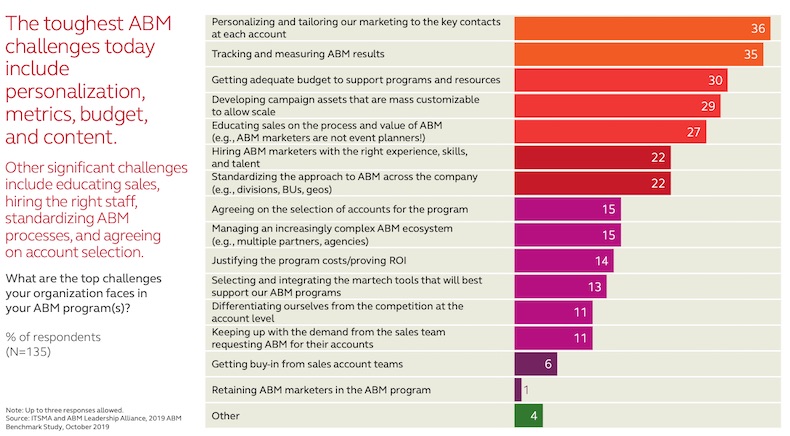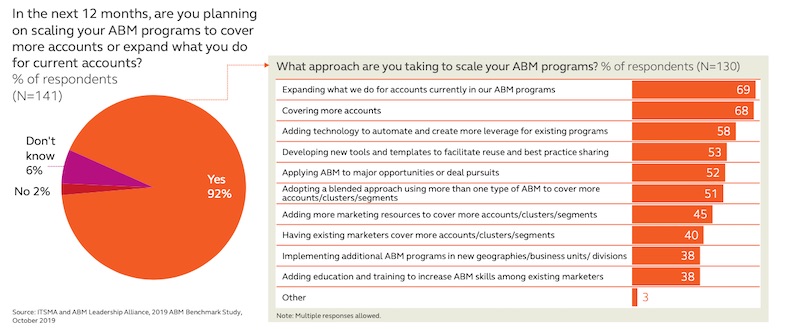Account-based marketing ( ABM) delivers significant benefits for B2B businesses, but it usually takes time before firms can reap these rewards, according to recent research from the ABM Leadership Alliance and ITSMA.
The report was based on data from a survey conducted in 2019 among 196 marketers at B2B technology and business service companies that engage in account-based marketing (the approach of targeting individual prospect/customer accounts as markets of one, rather than targeting wider groups/verticals).
The researchers segmented the surveyed firms into four categories of ABM maturity: exploring (in the planning phase), experimenting (running pilot programs), expanding (increasing account coverage), and embedded (using ABM extensively).
The most experienced companies (embedded) are much more likely to say they've seen significant improvements from using ABM:
- 59% of embedded firms say they've seen significant reputational gains from ABM.
- 75% say they've seen a significant increase in engagement from target accounts.
That's compared with 11% and 33%, respectively, for all other firms using ABM.
Objectives
The most common business objectives for utilizing ABM are to grow business with existing accounts and to sell to new accounts:
Challenges
Respondents say the toughest challenges with ABM are effectively personalizing marketing to individual accounts and tracking results:
Future Plans
Some 92% of respondents plan to increase the scale of their ABM efforts over the next 12 months.
The top areas for expansion are extending efforts for accounts already in ABM programs and adding more accounts to programs:
About the research: The report was based on data from a survey conducted in 2019 among 196 marketers at B2B technology and business service companies that engage in account-based marketing.








